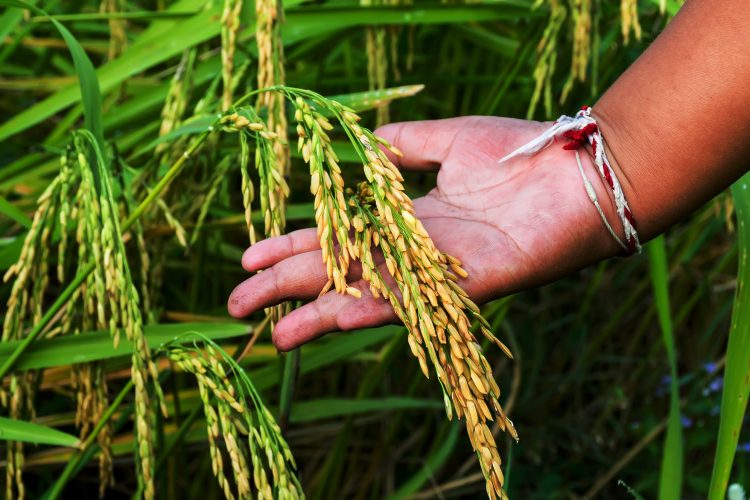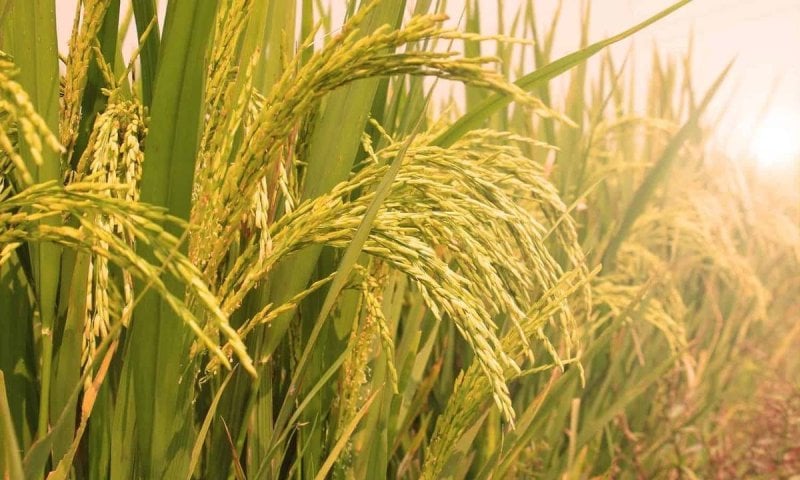Tags
Research reveals untapped potential in Africa’s rice sector
The University of Nebraska-Lincoln has claimed there are “major opportunities” for Africa’s rice sector to increase its yield gains through improved agronomic practices.

A new study has found that Africa’s rice sector has the potential to bolster its rice yields through improve agronomic practices while avoiding “massive land conversion”.
The research, led by international scientists and published in the journal Nature Communications, also finds that production advances could be important in meeting Africa’s projected food needs and even for reducing dependence on imports.
Currently, Africa imports nearly 40 percent of its rice, however the researchers note that rice demand in Africa is projected to more than double over the next 25 years due to population growth and increased rice consumption.
“Nearly 15 million hectares of rice are waiting for yield improvement in Africa, but no yield gain can be achieved without better agronomy. Intensifying rice production to reduce imports and land conversion in Africa,” said Patricio Grassini, the University of Nebraska–Lincoln Professor of Agronomy who coordinated the team working on the study.
Meanwhile, Kazuki Saito, a former researcher at the Africa Rice Center and is currently working at the International Rice Research Institute, explained that agronomic practices involving improved land development, soil and plant nutrition, weed control and water management, as well as moderate cropland expansion, “could give the region a more optimistic future”.
To carry out the research, the teams at University of Nebraska-Lincoln, Huazhong Agricultural University, Africa Rice Center, and Wageningen University and Research, received support from the Bill and Melinda Gates Foundation through the Consultative Group for International Agricultural Research Excellence in Agronomy 2030.
“[The] current average rice yield in Africa is very low in relation to other parts of the world, indicating a substantial opportunity to enhance African rice production. By employing a process-based crop simulation modelling approach combined with extensive on-the-ground data collection, the research team found that the average yield for Africa’s rice sector represents less than half the yield that could be achieved with improved agronomic practices,” explained the scientists.
Currently, domestic rice production in Africa reportedly meets about 60 percent of the continent’s demand, with the researchers highlighting that “import dependence places Africa in a vulnerable position” and “without a substantial increase in rice yields, meeting future rice demand will require more rice imports, as well as conversion of wildlife habitat to agricultural use.
“Africa’s heavy reliance on imports not only poses a significant threat to food security, but also leaves the continent susceptible to external supply and price shocks, as has happened recently when India imposed bans on rice exports,” said Martin van Ittersum, a Professor of Agronomy at Wageningen University.
Boosting African rice yields as outlined in the study can go far in “meeting the future rice demand of 150 million tons by 2050 without increases in current rice exports while reducing the pressure to convert land for rice cultivation,” said Shaobing Peng, a Professor of Agronomy at Huazhong Agricultural University who also contributed to the study. Meanwhile, Derek McLean, Dean of the Agricultural Research Division at Nebraska noted that the process-based crop simulation modelling approach used in the study “is a powerful tool to evaluate and determine opportunities for crop improvement” and has practical relevance for producers in Nebraska and nationwide.
“This study is an excellent example of our global presence and collaborative nature of researchers at UNL. Supporting crop improvement, food security and agriculture stability throughout the world is good for Nebraska and will eventually catalyse opportunities for our producers,” concluded McLean.
https://www.newfoodmagazine.com/news/213772/research-reveals-untapped-potential-in-africas-rice-sector/Published Date: February 8, 2024






